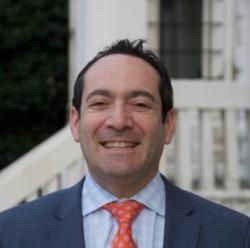Illicit finance and financial secrecy pose a growing danger to democracy, enable corruption, undermine economies and markets, weaken security, and erode public trust in good governance and institutions. Individuals and networks, including autocrats and criminals, may hide their assets using opaque complex financial structures made up of anonymous companies and trusts, linking together multiple structures across borders. This allows them to evade taxes, avoid consequences of criminal behavior, or launder the proceeds of ill-gotten gains.
But the global fight against this financial secrecy has also been growing. A keystone of the battle has been increasing transparency about the people who ultimately own or control companies and other entities, referred to as “beneficial owners.” The last decade has seen notable progress: Over 80 countries now maintain beneficial ownership registers, collecting data that was once obscure and making it more accessible and transparent.
Having that data, as important as it is, is just the start; the real challenge lies in ensuring its quality, accessibility, and effective usage. On the occasion of the 2024 International Anti-Corruption Conference and following the third Summit for Democracy, it is worth looking closely at progress and next steps for these efforts that are so critical to fairness and global security.
Below are six key lessons from new research by the Brookings Anti-Corruption, Democracy, and Security (ACDS) project and the Open Government Partnership (OGP) examining beneficial ownership ecosystems in five countries: Colombia, Indonesia, Kenya, Ukraine, and the United States. This research complements other resources we contributed to such as the Summit for Democracy Financial Transparency and Integrity Cohort’s “Considerations for Governments Working Alongside Civil Society on the Implementation of Beneficial Ownership Transparency Commitments.”
Each of the five countries we focused on in our forthcoming profiles has laws on collecting beneficial ownership data, but at very different levels of development. While these countries have diverse legal frameworks, different institutional strengths, and varying transparency levels, several common themes emerged:
- Improving access can increase benefits. In some of the studied countries, beneficial ownership data is, for the most part, open. When data can be downloaded in bulk, it can be part of large-scale data analysis approaches, looking for patterns or concerns. In Ukraine, for example, companies, non-governmental organizations, and journalists are able to regularly use the data for their own purposes—whether to understand the market, investigate business deals, or examine political financing. This is a considerable enhancement of a government-alone approach. While Kenya and Indonesia provide public access to some beneficial ownership data, the United States restricts it to certain authorities. This variance highlights a spectrum of openness. In each of these cases, governments can expand accessibility. In countries that already have public data (Indonesia or Ukraine, for example), access can be expanded through allowing bulk downloads. In the US or Colombia, even though beneficial ownership data is not public, expanding access to a wider range of government authorities, or to business service providers responsible for customer due diligence, would unlock further benefits.
- Coverage is key. Registers should cover all major potential legal vehicles for financial secrecy. The types of those vehicles covered vary across jurisdictions. In some countries, such as Ukraine, trusts and certain types of companies that can be abused for illicit purposes are not covered. In a number of the profiled countries, foreign entities doing business in the country do not report—another loophole. We found in our research that while some countries such as Colombia now include trusts and other non-corporate entities in their registers, gaps remain, particularly with real estate and other high-risk assets. This poses a significant risk of money laundering.
- Compliance is a persistent challenge. Missing beneficial ownership data or misfiled data still poses a challenge. Not all companies required to declare their beneficial owners do so. Addressing these issues involves regular updates, compliance monitoring, and rigorous verification processes to ensure data accuracy and reliability. Enabling and ensuring more entities comply with reporting requirements might involve more stringent monitoring and enhancing penalties for non-compliance, but also can include positive incentives—the carrot and not just the stick. Some of these results are undoubtedly the product of nothing more than a lack of understanding, which is why better education and communication efforts are also important.
- Quality controls are essential. The quality of data directly impacts its utility in fighting corruption. For beneficial ownership data to be fully effective, it must be accurate and up to date. A major area of concern across the countries profiled was ensuring that the reported beneficial owners are the actual owners. This requires verification and validation of key information at the time of registration and at points of major change, as well as measures (such as audits for high-risk records) to check data already held on the register.
- Interoperability makes data part of a more effective system. Agencies responsible for beneficial ownership registers should build their systems for integration with other relevant data systems. When they do this, key players such as law enforcement, civil society, and the media can use the data more effectively. “Interoperability” is when two systems share key elements. People working with these systems can combine and analyze information from both systems together. This enables beneficial ownership information to be checked against other systems; for example, to make sure people are who they say they are by checking information against verified drivers’ licenses or passport records.
Interoperability also enables easier analysis of beneficial ownership data with other relevant datasets, such as a procurement authority, civil society watchdog, or media organization checking beneficial owners against public contracts data, or a financial intelligence unit looking for patterns of suspicious banking activity. But interoperability is not just about data. It also means making sure that agencies, whistleblowers, and law enforcement all have channels to share information and act on it when there are concerns. In practical terms, this means appointing liaisons, putting in place capable and well-resourced organizational infrastructure, sharing procedures manuals, and having appropriate data sharing agreements in place.
- Making the case for beneficial ownership matters a lot. Transparency and accountability policies and systems are often contested and can also run up against corrupt or entrenched self-interested actors. A small, very motivated group of players may spend huge amounts of money and time to fight and wield political influence against reform and anti-corruption systems implementation. Establishing a working and effective beneficial ownership system, while fighting these headwinds, means getting broad buy-in. Practically speaking, this means anti-corruption reformers need to understand, appeal to, and address the real and specific concerns of each country, its policymakers, and its people.
There is no one size fits all approach to how countries reduce financial secrecy to curb corruption and tax evasion. Different sovereigns foreground different issues of particular national relevance. Ukraine’s focus is on advancing reconstruction and recovery, pursuing its EU membership track, and keeping corruption and foreign influence from disrupting that process. In Kenya, meanwhile, much of the effort focuses on strengthening transparency and accountability needed to bring in foreign direct investment. In Indonesia, civil society use of beneficial ownership data has focused on the nexus of corruption, climate change, and forestry. These local factors matter greatly, as beneficial ownership is a tool that, while extremely useful, will become more impactful if it is successfully adapted to a country’s particular context. The challenges exposed in our research are addressed in Open Ownership’s principles for effective beneficial ownership disclosure, which offer guidance to countries on implementing beneficial ownership reforms that generate high-quality and reliable data, maximizing usability.
The establishment of beneficial ownership registers globally, which accelerated in large part over approximately the past decade, has been nothing short of remarkable. Yet more should be done by stakeholders to advance this effort to pierce the veil of illicit finance and promote progress in financial integrity. Findings from the profiled countries underscore that the ongoing challenge is to strengthen existing systems—not just to collect data, but to ensure it is used effectively to promote integrity and accountability in financial transactions.
As beneficial ownership systems evolve, impacted by technology and other factors, they must not only adapt to changing legal, economic, and geostrategic landscapes, but also respond to the needs of a diverse array of stakeholders committed to maintaining the integrity of global financial systems. Collective efforts by civil society, media, the private sector, and government to improve transparency and combat corruption are aided by the use of beneficial ownership information. These efforts not just regulatory necessities: They are crucial for more fair growth, democratic governance, and global security.
-
Acknowledgements and disclosures
The authors would like to thank Anya Sokolowski, Harry Otimos, and Eric Urby for fact-checking and copyediting assistance. Many thanks also to Louise Russell-Prywata for her thoughtful comments.
The Brookings Institution is committed to quality, independence, and impact.
We are supported by a diverse array of funders. In line with our values and policies, each Brookings publication represents the sole views of its author(s).










Commentary
A better anti-corruption machine: Breakthroughs needed to fight illicit finance and protect democracy
June 17, 2024